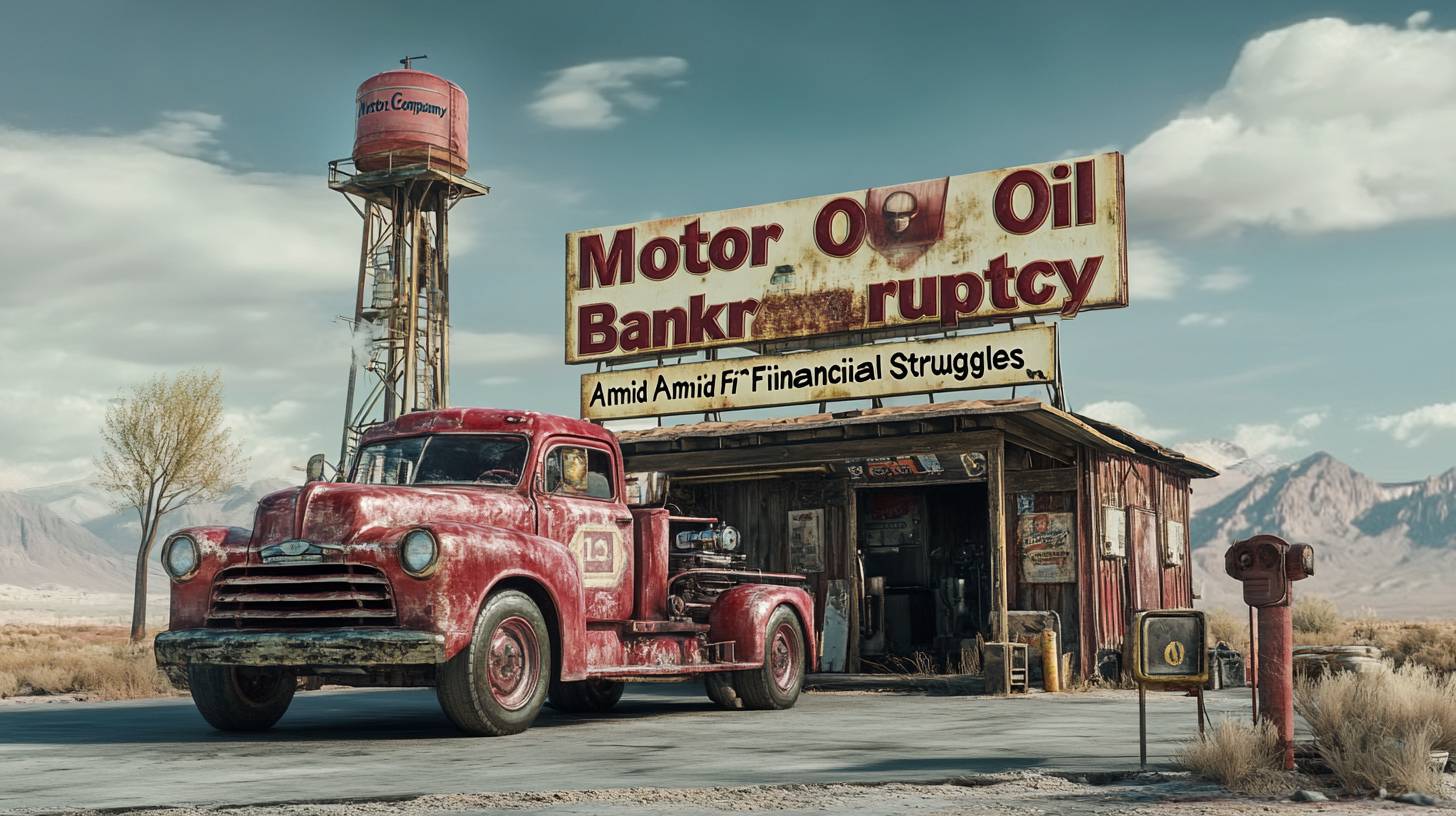
Fisker Group and Auto Parts Manufacturers Encounter Financial Struggles
The automotive sector is experiencing significant financial turmoil, with numerous prominent companies opting for Chapter 11 bankruptcy in 2024. Fisker Group, an electric vehicle (EV) producer located in Manhattan Beach, California, became the first car manufacturer to pursue Chapter 11 protection this year, filing on June 18. The firm attributed its financial woes to a mix of market conditions and macroeconomic headwinds. Rising expenses, disruptions in the supply chain, and escalating competition in the EV market have intensified these challenges, leading Fisker to restructure its operations under bankruptcy protection.
The auto parts industry has also been severely affected, especially in Germany, where 20 EV auto parts manufacturers declared bankruptcy in the first half of 2024. This wave of insolvencies showcases the extensive difficulties confronting the global automotive supply chain, as businesses manage surging input costs, variable demand, and the ongoing shift to electric vehicles. The consequences of these bankruptcies are expected to resonate throughout the industry, including in Australia, where the automotive sector is closely linked to international supply chains.
In the United States, Wheel Pros, a significant auto parts distributor and retailer operating under the Hoonigan brand, filed for a prepackaged Chapter 11 bankruptcy on September 9. The company’s restructuring strategy is designed to eradicate .2 billion in debt while securing 0 million in new capital through an exit facility. This initiative is anticipated to offer the firm the financial latitude required to navigate the challenging market environment and sustain its operations.
The Chapter 11 filing by Wheel Pros comes on the heels of a comparable move by PartsID, an e-commerce auto parts retailer, which sought Chapter 11 protection in December 2023. The consecutive filings by these firms highlight the financial strains faced by the auto parts sector, particularly in the U.S., where climbing interest rates and inflation have made it progressively more challenging for businesses to manage their debt burdens.
Stanley Oil’s Legal Conflicts and Bankruptcy Submission
Stanley Oil & Lubricants, a petroleum product company located in Melville, New York, found itself in a vulnerable position after a U.S. District Court judge granted a preliminary injunction to General Petroleum GmbH, a Frankfurt-based manufacturer of automotive, industrial, and marine lubricants. The September 11 injunction effectively barred Stanley Oil from producing, importing, distributing, or selling any goods featuring General Petroleum’s trademarks or any similar marks. This legal setback also froze specific assets associated with the alleged distribution of counterfeit goods, further restricting Stanley Oil’s operations.
The legal contention between Stanley Oil and General Petroleum traces back to August 2019, when the two entities entered into a business partnership involving the procurement of petroleum products from General Petroleum’s operations in Sharjah, UAE, for resale in the U.S. However, the relationship deteriorated, resulting in a five-year legal conflict over trademarks, copyrights, and other business matters. General Petroleum intensified the situation by filing a lawsuit on March 28, 2024, in the Eastern District of New York, accusing Stanley Oil of trademark infringement, copyright infringement, unfair competition, deceptive marketing practices, breach of contract, cybersquatting, and trafficking counterfeit goods.
Negotiations for a settlement between the two sides prolonged for several weeks but ultimately fell apart in mid-June 2024, shortly after Stanley Oil changed its legal representation. In retaliation, General Petroleum sought a preliminary injunction on June 14, which was approved by U.S. District Judge Nina R. Morrison. The judge ruled in favor of General Petroleum on all counts, affirming that the company had shown a strong likelihood of success regarding its claims, including trademark infringement, unfair competition, and trafficking counterfeit goods.
Faced with escalating legal and financial pressures, Stanley Oil filed for Chapter 11 bankruptcy protection on September 17 in the U.S. Bankruptcy Court for the Eastern District of New York. The company’s bankruptcy documentation indicated assets of up to ,000 and debts ranging between million to million. Particularly noteworthy is Stanley Oil’s assertion that no funds would be available for unsecured creditors after settling administrative costs, further emphasizing its financial predicament.
The bankruptcy filing has instigated an automatic stay on any ongoing legal proceedings, including the lawsuit initiated by General Petroleum. This stay offers Stanley Oil temporary relief from its legal challenges as it strives to reorganize its operations and fulfill its financial obligations. Nonetheless, the company’s future remains uncertain, particularly in light of the significant legal and financial obstacles it confronts.
Stanley Oil offers a diverse assortment of products, including automobile, industrial, and marine lubricants, alongside automotive grease, additives, chemicals, brake fluid, coolant, and base oil. These offerings are marketed under various brand names, including Stanley, Syntrol, Prime, and Hexagen. The company’s capacity to continue promoting these products will likely hinge on the outcome of its bankruptcy proceedings and its ability to settle the ongoing legal dispute with General Petroleum.

